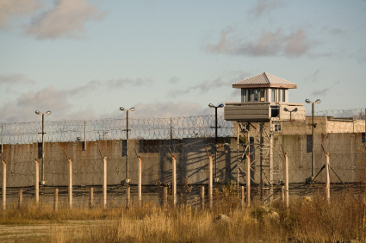|
|
| Lessons Learned from the Second Chance Act: Moving Forward to Strengthen Offender Reentry |
| By The National Instutute of Justice |
| Published: 08/06/2018 |
 Signed into law in April 2008, the Second Chance Act (SCA) aims to enhance public safety by breaking the cycle of criminal
recidivism and improving outcomes for people returning from prisons, jails, and juvenile facilities. The SCA authorizes the
awarding of federal grants to government agencies and nonprofit organizations to provide reentry services and programs,
including employment and housing assistance, victim support, and substance abuse treatment. Additionally, SCA funds may
be used to support general criminal justice system improvements.
Signed into law in April 2008, the Second Chance Act (SCA) aims to enhance public safety by breaking the cycle of criminal
recidivism and improving outcomes for people returning from prisons, jails, and juvenile facilities. The SCA authorizes the
awarding of federal grants to government agencies and nonprofit organizations to provide reentry services and programs,
including employment and housing assistance, victim support, and substance abuse treatment. Additionally, SCA funds may
be used to support general criminal justice system improvements.
What is NIJ’s role? Under the SCA, the Bureau of Justice Assistance (BJA) started funding offender reentry demonstration projects, and the National Institute of Justice (NIJ) was directed to evaluate the effectiveness of BJA’s projects. Since the passage of this important legislation and in collaboration with BJA, NIJ has supported two rigorous, independent evaluations of SCA adult offender reentry demonstration projects. What did we learn? The two NIJ-supported evaluations, led by Social Policy Research Associates and RTI International, produced similar results. In general, and with a few exceptions, participation in an SCA program did not affect a range of reentry outcomes, for example, substance use and compliance with supervision. Participation in an SCA program did, however, increase access to and receipt of reentry services and programs for participants and improve partnerships with community agencies. Importantly, participation in SCA programming did not significantly reduce the likelihood of recidivism [1]. What does this all mean? The provision of reentry programming, specifically SCA programs and services, remains a work in progress. Offender behavior and the reentry process are complex. Just as no two individuals are alike, neither are their needs. The two NIJ-supported evaluations of SCA projects offer a snapshot into the real-world challenges of providing services and programs to individuals returning to the community after incarceration. The SCA addresses these challenges by allowing sites to tailor their programs and services to the needs of participants in their local communities. This diversity among programs may be valuable for observing what’s working and what needs improvement, but it can also significantly complicate the evaluation process. Additionally, the NIJ-supported studies assess only the first subsample of adult offender reentry demonstration projects selected by BJA for SCA funding (14 sites) [2]. Future evaluations with access to more data over a longer period of time may provide a clearer picture of the strengths and weaknesses of these efforts. [1] As referenced here, key recidivism measures include rearrest, reincarceration, and reconviction. [2] Since 2009, BJA has made iterative changes to the SCA reentry demonstration program. The preceding was reprinted from the information sheet titled "Lessons Learned from the Second Chance Act: Moving Forward to Strengthen Offender Reentry", published June 2018 by the National Institute of Justice. To view the full information sheet click here. |
Comments:
Login to let us know what you think
MARKETPLACE search vendors | advanced search

IN CASE YOU MISSED IT
|


Child psychologist Bruno Betterment specializes in the importance of childhood fairy tales, and he believes that fairy tales can help children solve their anxiety problems that are currently unexplained. Child psychologist Bruno Betterment specializes in the importance of childhood fairy tales, and he believes that fairy Write My Essay Guru tales can help children solve their anxiety problems that are currently unexplained.